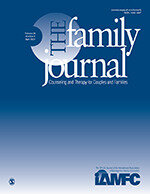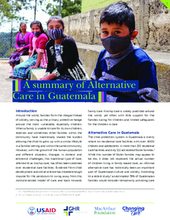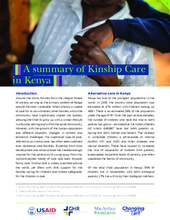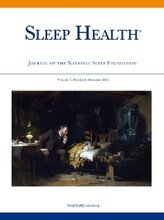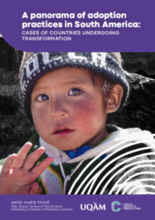Displaying 31 - 40 of 576
This study investigates how experiences and practices of transnational care arrangements are negotiated from the perspective of the nonparental carers. It specifically aims to understand its dynamics and patterns in shaping care relationships, normative familial values and the hope to reconstitute the family amidst migration-induced care.
Childrearing in sub-Saharan Africa is often viewed as collaborative, where children benefit from support from kin. For single mothers living in informal settlements, kin networks may be highly dispersed and offer little day-to-day childrearing support, but may provide opportunities for child fostering. This study conducted in Nairobi, Kenya, uses a linked lives approach, where single mothers’ connections with kin and romantic partners may influence whether – and what type of – kin are relied on to support child fostering.
These two case studies focus on kinship care: one describes kinship care in the Kenya context and the other describes family-based alternative care in Guatemala, including kinship care. They are meant to help practitioners better understand the practical implications of kinship and other forms of family-based alternative care and inform similar work in other contexts. These case studies have been produced by Changing the Way We CareSM, a global initiative implemented by Catholic Relief Services and Maestral International, and other global, national and local partners working together to change the way we care for children around the world.
This case study focuses on kinship care in the Kenya context.
This systematic review aims to examine the effectiveness of interventions that seek to improve outcomes of grandchildren raised by grandparents.
The goal of this Call to Action is to draw attention to the sleep health of children residing in alternative care settings. It highlights the need for a more robust evidence base to address major knowledge gaps and outline concrete steps toward building future promising sleep health-promoting practices and policies supporting children residing in alternative care settings.
Grandmothers are important in Chinese families. This study explored the early emerging mother-grandmother-infant network and its association with a child's socioemotional development in multigenerational families in a non-WEIRD country.
This research brought together the testimonies of adoption professionals (national and international) concerned with the situation of abandoned and placed children in five South American countries: Argentina, Bolivia, Chile, Colombia and Peru. The aim of this study is to gain a better understanding of the new realities of adoption, in a context where these countries have chosen to limit or stop their foreign adoption practices.
This Prakas was drafted in accordance with Cambodia’s policies, standards and regulations to enable the implementation of kinship care and foster care. The Goal of the Prakas is to ensure the best interests of the child and protect the basic rights of the child separated from his/her biological parents and receiving kinship or foster care, so that they are safe and thriving in a warm, loving and happy family environment.
The Goal of the Prakas is to ensure the best interests of the child and protect the basic rights of the child separated from his/her biological parents and receiving kinship or foster care, so that they are safe and thriving in a warm, loving and happy family environment.

